#a family tragicomic
Text
Was Daedalus really stricken with grief when Icarus fell into the sea? Or just disappointed by the design failure?
Fun Home: A Family Tragicomic, by Alison Bechdel
#page 12#fun home#a family tragicomic#alison bechdel#comic#cartoon#graphic novel#domestic violence tw#dv tw#child abuse tw#mental illness#dyke#lesbian#queer#lgbt#quote#quotes#literature#book#booklr#reading#daedalus#icarus#disappointment#failure
28 notes
·
View notes
Text
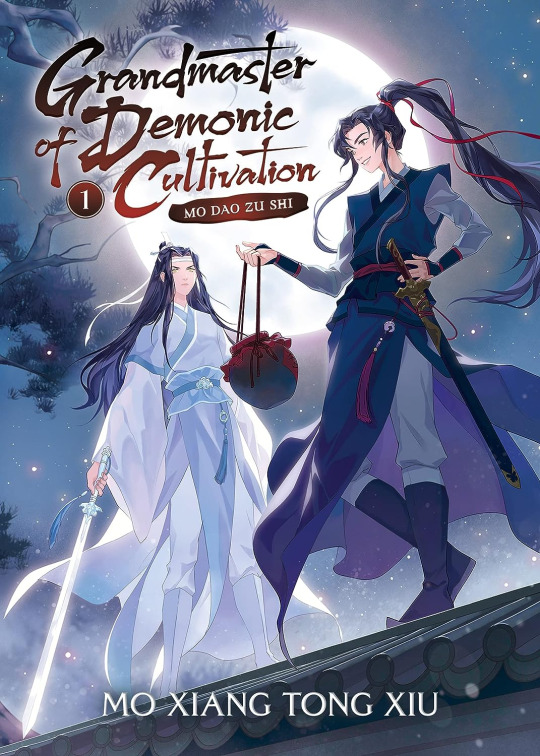
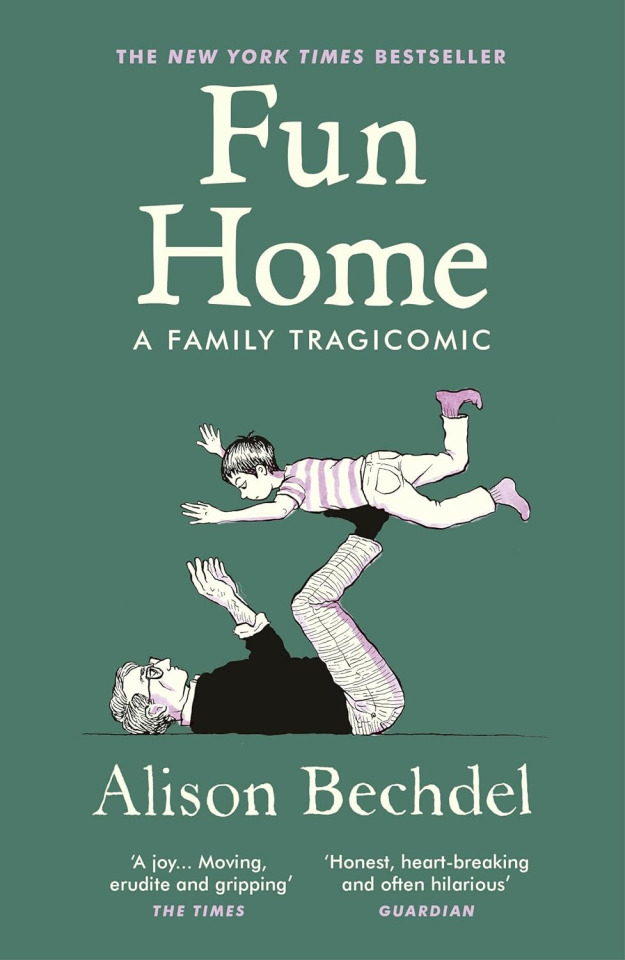
Grandmaster of Demonic Cultivation Summary:
Wei Wuxian was once one of the most outstanding men of his generation, a talented and clever young cultivator who harnessed martial arts, knowledge, and spirituality into powerful abilities. But when the horrors of war led him to seek a new power through demonic cultivation, the world's respect for his skills turned to fear, and his eventual death was celebrated throughout the land.
Years later, he awakens in the body of an aggrieved young man who sacrifices his soul so that Wei Wuxian can exact revenge on his behalf. Though granted a second life, Wei Wuxian is not free from his first, nor the mysteries that appear before him now. Yet this time, he'll face it all with the righteous and esteemed Lan Wangji at his side, another powerful cultivator whose unwavering dedication and shared memories of their past will help shine a light on the dark truths that surround them.
Fun Home - A Family Tragicomic Summary:
Meet Alison's father, a historic preservation expert and obsessive restorer of the family's Victorian home, a third-generation funeral home director, a high-school English teacher, an icily distant parent, and a closeted homosexual who, as it turns out, is involved with his male students and the family babysitter. When Alison comes out as homosexual herself in late adolescence, the denouement is swift, graphic, and redemptive.
Interweaving between childhood memories, college life and present day, and through narrative that is equally heartbreaking and fiercely funny, Alison looks back on her complex relationship with her father and finds they had more in common than she ever knew.
#grandmaster of demonic cultivation#the grandmaster of demonic cultivation#mo dao zu shi#mdzs#mo xiang tong xiu#mxtx#fun home#fun home - a family tragicomic#alison bechdel#danmei#lgbt books#lgbt literature#queer books#queer literature#lgbtqia#poll
30 notes
·
View notes
Note
For the bookish ask
📕 What book has had the biggest impact on your life, and why?
📝What fictional world would you love to visit and explore if given the chance?
🧉 and two extra, what are the books that you need to/wish you could recommend to everybody and do you have a character you wish everybody knew about?
Which books had the biggest impact on your life?
Hatchet by Gary Paulsen and The Alchemist by Paulo Coelho. I read Hatchet in the eighth grade, and it taught me to learn things more intentionally. I had known before, but this book confronted me with the importance of adapting knowledge into a given situation. I was also more interested in learning practical skills afterwards (fire building, plant identification, etc). I read The Alchemist a year after in high school, when I was uncertain about my future. It gave me the motivation to finish projects and it got me out of a huge creative slump. I’m very grateful to both of these books.
Which fictional world would you love to visit and explore if given the chance?
HANDS DOWN THE DC UNIVERSE!! Guys I would be living it up in Gotham idc 🔥
What are the books that you need to/wish to recommend to everyone?
Depends on what genre they like:
Crime fiction/mystery -> The D.I. Callanach series by Helen Sarah Fields
Romance: anything by Emily Henry
Romance/fantasy: All Of Us Villains duology by Amanda Foody
Rlly sad lgbt romance: Lie With Me by Philippe Besson
Sports (hockey) lgbt romance: Icebreaker by A. L. Graziadei
Urban fantasy: The Stranger Times by C. K. McDonnell
Memoir: Fun Home a Family Tragicomic
Graphic novel: Mamo by Sas Milledge
Jason Todd comic: Red Hood Lost Days by Judd Winick
(Among others ofc. I have too many recs lmao)
Do you have a character you wish everyone knew about?
This is actually a very hard decision, there’s too many lmao. I’m picking Stephanie Brown from DC comics though bc she is too often ignored in the fandom 💥 she is cool and feral and silly!! And her story is so sad :(
#fennec speaks#bookblr#asked and answered#hatchet#the alchemist#perfect prey#all of us villains#lie with me#icebreaker#the stranger times#fun home: a family tragicomic#Mamo#red hood: lost days#ty for the ask!!
6 notes
·
View notes
Text
As a queer individual and someone who has a complicated relationship with their own father, Alison Bechdel's Fun Home: A Family Tragicomic gives me more comfort than anguish from Bechdel's journey. I write this as I finished the book for the first time in three years.
The book itself truly speaks for the medium of graphic novels. Bechdel's way of writing makes you want to grasp the book and sit in awkward ways for the comfort of your arms. The sentences just will not let you put down the book, rather then the graphics. The cartoons are merely substitutes. The words gives space to keep us wondering and waiting for the inevitable conclusion of her father's death, which is the main subject of this book. You just start to mentally prepare yourself as you flip the pages, because even the next square of drawings might lead to a completely different conversation. It is probably the best writing I've seen to describe one writer's "stream of consciousness". Maybe this "stream of consciousness" is why I relate to Bechdel so much.
As I grew in age and started to see the world in my "adult" eyes, I began to reflect on the past more often. I started to compare the relationship I had with my father during my youth to today, which has drastically changed within the last 5 years. Which coincidentally (or resulted by) starting from the year I left for college. "Your world view will change. Your peers will open your eyes." My father encouraged me, as I expressed my disdain towards going to college. I wonder if he had thought that the change in my world view through college would become the foundation of our now awkward, rather frozen relationship.
As I look at my current relationship with my father, and read Bechdel's somewhat unusual relationship with her deceased father, I wonder, will I regret what I have with my father today when he is gone? The ending to Fun Home feels like a conclusion in Bechdel's own words. A way to forgive herself and her father on what could've. An acceptance towards the awkward, unusual, but one of a kind bond that they had. In a sense, I may be yearning for this conclusion, because of how final and so care free it looks. But it also scares me, because Bechdel's conclusion comes from the fact that her father is dead. There is no use, no leeway, no bullshit left to give. Concluded and done, no "to be continued". While I, with my father still working with all limbs, am able to send a text to him with a guaranteed conversation. Something Bechdel will never have. A privilege I have. And it scares me, because what if I never send the text before it's too late. And yet, it scares me with what happens after I do. Will I reach my conclusion that I accept? Or will we just end with what we have, this awkward, frozen relationship?
As my alarm at 10pm goes off, I have to stop this thought for today. I have a work to go to, and responsibilities to meet. The thought I have now bears no urgency to me. But I wonder, will there be a time when 10pm means nothing to me, tomorrow is just a number, and I send that text?
#fun home#book report#review#book review#graphic novel#self reflection#queer community#being queer#queer#lgbtq#father#relationships#parents#fun home a family tragicomic#books and literature#booklover#bookboost
3 notes
·
View notes
Text

No me sentí culpable comprándolo porque la versión Kindle estaba como a un dolar
0 notes
Text
two different people tried to set me up w their kids today my ego has never been bigger
#have that 'balkan parents want me to marry into the family' predisposition#the most Tragicomic one so far being my ex cardiologist
0 notes
Text
Fun Home: A Family Tragicomic
By Alison Bechdel
Date Finished: June 29, 2021
4.5/5
0 notes
Text
The real problem with anonymity
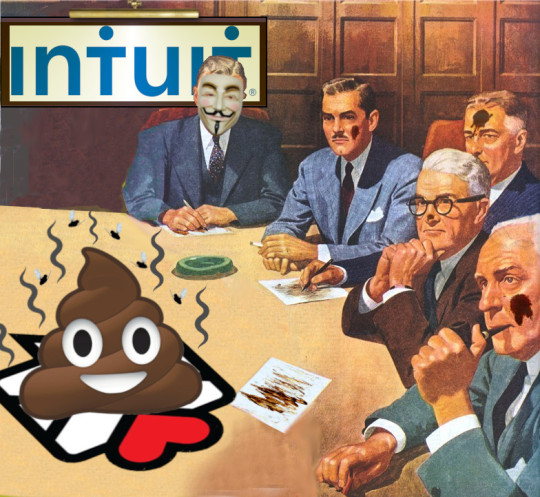
I'm on tour with my new, nationally bestselling novel The Bezzle! Catch me in TUCSON (Mar 9-10), then San Francisco (Mar 13), Anaheim, and more!

According to "the greater internet fuckwad theory," the ills of the internet can be traced to anonymity:
Normal Person + Anonymity + Audience = Total Fuckwad
https://knowyourmeme.com/memes/greater-internet-fuckwad-theory
This isn't merely wrong, it's dangerously wrong. The idea that forcing people to identify themselves online will improve discourse is demonstrably untrue. Facebook famously adopted its "real names" policy because Mark Zuckerberg claimed to believe that "Having two identities for yourself is an example of a lack of integrity":
https://www.zephoria.org/thoughts/archives/2010/05/14/facebook-and-radical-transparency-a-rant.html
In service to this claimed belief, Zuckerberg kicked off the "nym wars," turning himself into the sole arbiter of what each person's true name was, with predictably tragicomic consequences:
https://www.kalzumeus.com/2010/06/17/falsehoods-programmers-believe-about-names/
Facebook is, famously, one of the internet's most polluted reservoirs of toxic interpersonal conduct. That's not despite the fact that people have to use their "real" names to participate there, but because of it. After all, the people who are most vulnerable to bullying and harassment are the ones who choose pseudonyms or anonymity so that they can speak freely. Forcing people to use their "real names" means that the most powerful bullies speak with impunity, and their victims are faced with the choice of retreat or being targeted offline.
This can be a matter of life and death. Cambodian dictator Hun Sen uses Facebook's real names policy to force dissidents to unmask themselves, which exposes them to arbitrary detention, torture, and extrajudicial killing. For members of the Cambodian diaspora, the choice is to unmask themselves or expose their family back home to retaliation:
https://www.buzzfeednews.com/article/meghara/facebook-cambodia-democracy
Some of the biggest internet fuckwads I've ever met – and I've met some big ones! – were utterly unashamed about using their real names. Some of the nicest people I know online have never told me their offline names. Greater internet fuckwad theory is just plain wrong.
But that doesn't mean that anonymity is totally harmless. There is a category of person who reliably uses a certain, specific kind of anonymity to do vicious things that inflicts serious harm on whole swathes of people: corporate bullies.
Take Tinyletter. Tinyletter is a beloved newsletter app that was created to help people who just wanted to talk to others, without a thought to going viral or getting rich. It was sold to Mailchimp, which was sold to Intuit, who killed it:
https://www.theverge.com/24085737/tinyletter-mailchimp-shut-down-email-newsletters
Tinyletter was a perfect little gem of a service. It cost almost nothing to run, and made an enormous number of peoples' lives better every day. Shutting it down was an act of corporate depravity by some faceless Intuit manager who woke up one day and said "Fuck all those people. Just fuck them."
No one knows who that person was. That person will never have to look those people in the eyes – those people whose lives were made poorer for that Intuit executive's indifference. That person is the greater fuckwad, and that fuckwaddery depends on their anonymity.
Or take @Pixsy, a corporate shakedown outfit that helps copyleft trolls trick people into making tiny errors in Creative Commons attributions and then intimidates them into handing over thousands of dollars:
https://pluralistic.net/2022/01/24/a-bug-in-early-creative-commons-licenses-has-enabled-a-new-breed-of-superpredator/
Copyleft trolling is an absolutely depraved practice, a petty grift practiced by greedy fuckwads who are completely indifferent to the harm they cause – even if it means bankrupting volunteer-run nonprofits for a buck:
https://pluralistic.net/2023/04/02/commafuckers-versus-the-commons/
Pixsy claims that it is proud of its work "defending artists' rights," but when I named the personnel who signed their names to these profoundly unethical legal threats, Pixsy CEO Kain Jones threatened to sue me:
https://pluralistic.net/2022/02/13/an-open-letter-to-pixsy-ceo-kain-jones-who-keeps-sending-me-legal-threats/
The expectation of corporate anonymity runs deep and the press is surprisingly complicit. I once spent weeks working on an investigative story about a multinational corporation's practices. I spent hours on the phone with the company's VP of communications, over the course of many calls. When we were done, they said, "Now, of course, you can't name me in the article. All of that has to be attributed to 'a spokesperson.'"
I was baffled. Nothing this person said was a secret. They weren't blowing the whistle. They weren't leaking secrets. They were a corporate official, telling me the official corporate line. But they wouldn't sign their name to it.
I wrote an article about for the Guardian. It was the only Guardian column any of my editors there ever rejected, in more than a decade of writing for them:
https://memex.craphound.com/2012/05/14/anodyne-anonymity/
Given the press's deference to this anodyne anonymity, it's no wonder that official spokespeople expect this kind of anonymity. I routinely receive emails from corporate spokespeople disputing my characterization of their employer's conduct, but insisting that I not attribute their dubious – and often blatantly false – statements to them by name.
These are the greater corporate fuckwads, who commit their sins from behind a veil of anonymity. That brand of bloodless viciousness, depravity and fraud absolutely depends on anonymity.
Mark Zuckerberg claimed that "multiple identities" enabled bad behavior – as though it was somehow healthy for people to relate to their bosses, lovers, parents, toddlers and barbers in exactly the same way. Zuckerberg's motivation was utterly transparent: having "multiple identities" doesn't mean you "lack integrity" – it just makes it harder to target you for ads.
But Zuckerberg couldn't enshittify Facebook on his own. For that, he relies on a legion of anonymous Facebook managers. Some of these people undoubtably speak up for Facebook users' interests when their colleagues propose putting them in harm's way for the sake of some arbitrary KPI. But the ones who are making those mean little decisions? They absolutely rely on anonymity to do their dirty work.

Name your price for 18 of my DRM-free ebooks and support the Electronic Frontier Foundation with the Humble Cory Doctorow Bundle.

If you'd like an essay-formatted version of this post to read or share, here's a link to it on pluralistic.net, my surveillance-free, ad-free, tracker-free blog:
https://pluralistic.net/2024/03/04/greater-corporate-fuckward-theory/#counterintuit-ive
#pluralistic#tinyletter#enshittification#greater internet fuckwad theory#real names#nymwars#intuit#mailchimp
2K notes
·
View notes
Text
But how could he admire Joyce's lengthy, libidinal "yes" so fervently and end up saying "no" to his own life?
I suppose that a lifetime spent hiding one's erotic truth could have a cumulative renunciatory effect. Sexual shame is in itself a kind of death.
Fun Home: A Family Tragicomic, by Alison Bechdel
#page 228#fun home#a family tragicomic#alison bechdel#comic#cartoon#graphic novel#domestic violence tw#dv tw#child abuse tw#mental illness#dyke#lesbian#queer#lgbt#quote#quotes#literature#book#booklr#reading#shame#sexuality#ulysses#james joyce
3 notes
·
View notes
Text
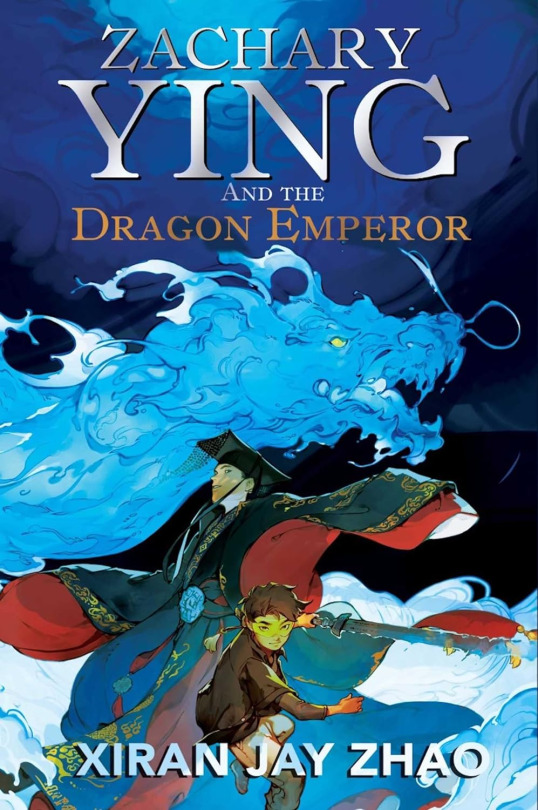
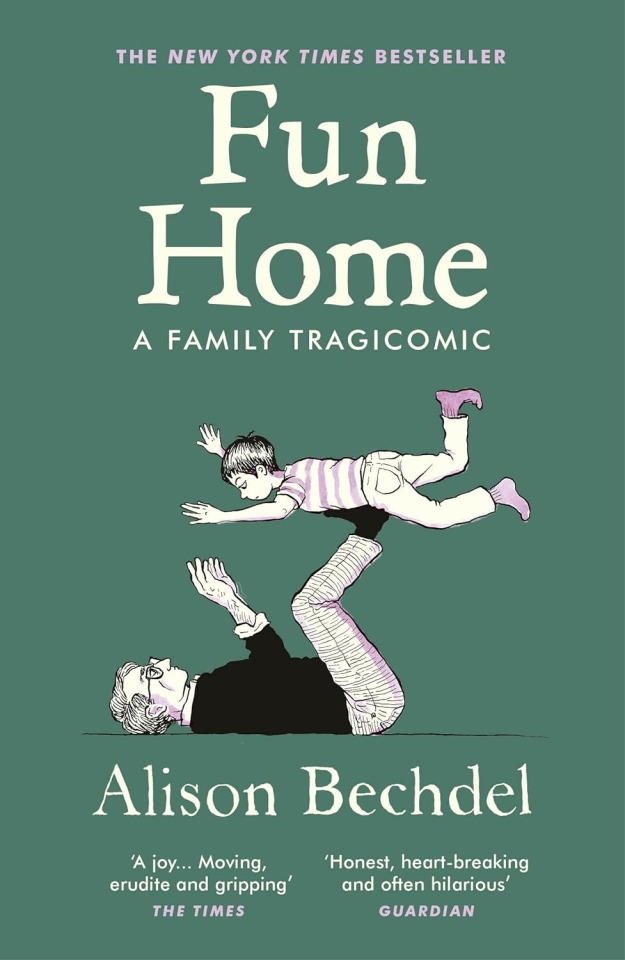
Zachary Ying and the Dragon Emperor Summary:
Local gay 12 year old gets possessed by the first emperor of China. He is actually canonically gay, he is very relatable for someone who has been a gay 12 year old boy. I just wanted to nominate a middle grade with a canonically gay protagonist because I NEVER thought we'd get anything like that ever.
Fun Home - A Family Tragicomic Summary:
Meet Alison's father, a historic preservation expert and obsessive restorer of the family's Victorian home, a third-generation funeral home director, a high-school English teacher, an icily distant parent, and a closeted homosexual who, as it turns out, is involved with his male students and the family babysitter. When Alison comes out as homosexual herself in late adolescence, the denouement is swift, graphic, and redemptive.
Interweaving between childhood memories, college life and present day, and through narrative that is equally heartbreaking and fiercely funny, Alison looks back on her complex relationship with her father and finds they had more in common than she ever knew.
#zachary ying and the dragon emperor#zachary ying#xiran jay zhao#fun home#fun home - a family tragicomic#alison bechdel#lgbt books#lgbt literature#queer books#queer literature#lgbt#lgbtq#lgbtqia#poll#middle grade#comics#comic books#graphic novel#graphic novels
7 notes
·
View notes
Photo
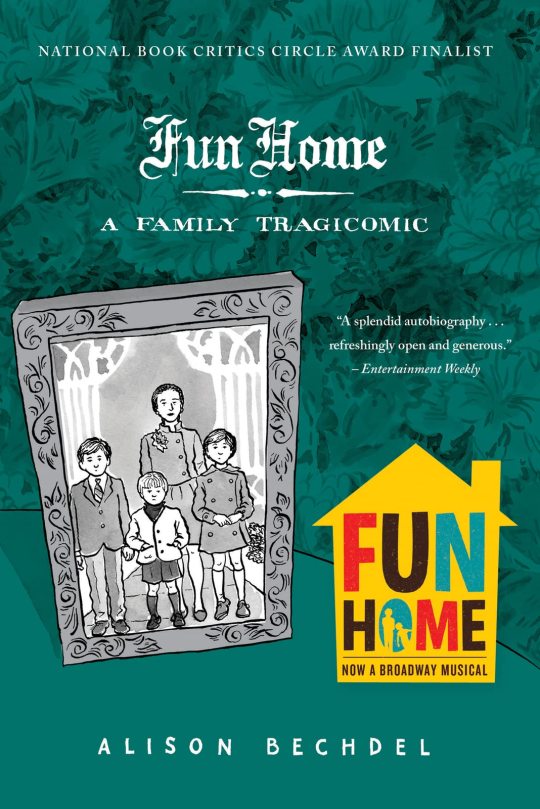
Title: Fun Home: A Family Tragicomic
Author: Alison Bechdel
Series or standalone: standalone
Publication year: 2007
Genres: nonfiction, graphic novel, memoir, biography, LGBT+
Blurb: Alison Bechdel charts her fraught relationship with her late father. Distant and exacting, Bruce Bechdel was an English teacher and director of the town funeral home, which Alison and her family referred to as the Fun Home. It was not until college that Alison, who had recently come out as a lesbian, discovered that her father was also gay. A few weeks after this revelation, he was dead, leaving a legacy of mystery for his daughter to resolve.
#fun home#fun home a family tragicomic#alison bechdel#standalone#2007#nonfiction#graphic novel#memoir#biography#lgbt
0 notes
Text
Let’s Go Lesbians! 32 Books for Lesbian Visibility Day
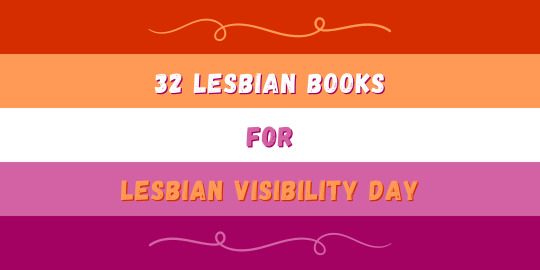
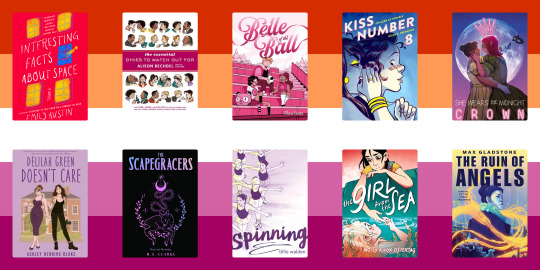
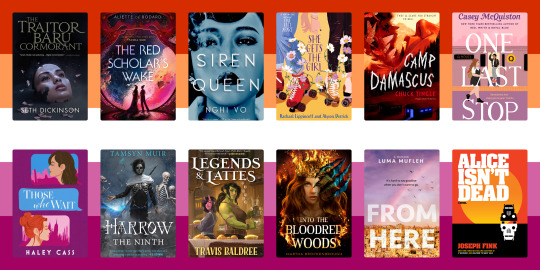
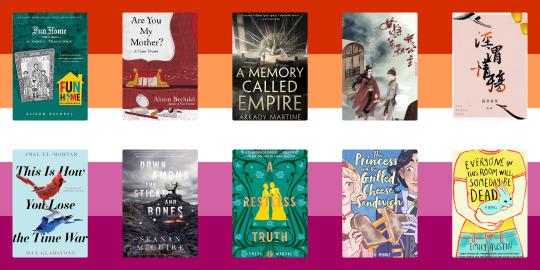
TODAY! is Lesbian Visibility Day, the first day of Lesbian Visibility Week – April 26, 2024. We are, I’m sure you’re shocked to discover, celebrating with LOTS of lesbian books! 15 people contributed to making this list, all of us sharing our absolute faves, from graphic novels to epic novels, from memoirs to horror fiction, with explicit rep and implied. With this many awesome books to share, we’re prepared to guarantee that everyone who loves wlw lit can find something new to them on this amazing list!
Interesting Facts About Space by Emily Austin
The Essential Dykes to Watch Out For by Alison Bechdel
Belle of the Ball by Mari Costa
Kiss Number 8 by Colleen AF Venable & Ellen T. Crenshaw
She Wears the Midnight Crown Anthology
Delilah Green Doesn’t Care by Ashley Herring Blake
The Scapegracers & The Scratch Daughters by H.A. Clarke
Spinning by Tillie Walden
The Girl from the Sea by Molly Knox Ostertag
The Ruin of Angels by Max Gladstone
The Traitor Baru Cormorant by Seth Dickinson
The Red Scholar’s Wake by Aliette de Bodard
Siren Queen by Nghi Vo
She Gets the Girl by Rachael Lippincott & Alyson Derrick
Camp Damascus by Chuck Tingle
One Last Stop by Casey McQuiston
Those Who Wait by Haley Cass
Harrow the Ninth by Tamsyn Muir
Legends & Lattes by Travis Baldree
Into the Bloodred Woods by Martha Brockenbrough
From Here by Luma Mufleh
Alice Isn’t Dead by Joseph Fink
Fun Home: A Family Tragicomic by Alison Bechdel
Are You My Mother? A Comic Drama by Alison Bechdel
A Memory Called Empire & A Desolation Called Peace by Arkady Martine
Female General, Eldest Princess by Please Don’t Laugh
Clear And Muddy Loss of Love by Please Don’t Laugh
This Is How You Lose the Time War by Max Gladstone & Amal El-Mohtar
Down Among the Sticks and Bones by Seanan McGuire
A Restless Truth by Freya Marske
The Princess and the Grilled Cheese Sandwich by Deya Muniz
Everyone in This Room Will Someday Be Dead by Emily Austin
Can’t get enough books with lesbians? Yeah, us neither – this new list for 2024 is on top of THREE rec lists of titles featuring lesbians that we posted last year.
Lesbian Visibility Week Recs Part 1
Lesbian Visibility Week Recs Part 2
Duck Prints Press Short Stories with Lesbian Characters
You can also view this list (along with all our other wlw faves!) as a shelf on Goodreads!
See a book you want to buy? You can grab it through the Duck Prints Press Bookshop.org affiliate shop!
What are YOUR favorite reads with lesbian characters?
#duck prints press#wlw characters#lesbian characters#queer books#queer fiction#queer non-fiction#lesbian visibility day#lesbian visibility week
300 notes
·
View notes
Text
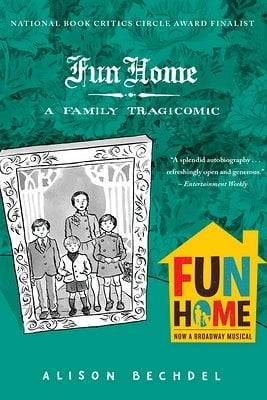
Fun Home: A Family Tragicomic
Alison Bechdel
Distant and exacting, Bruce Bechdel was an English teacher and director of the town funeral home, which Alison and her family referred to as the "Fun Home." It was not until college that Alison, who had recently come out as a lesbian, discovered that her father was also gay. A few weeks after this revelation, he was dead, leaving a legacy of mystery for his daughter to resolve. In her hands, personal history becomes a work of amazing subtlety and power, written with controlled force and enlivened with humor, rich literary allusion, and heartbreaking detail.
(Affiliate link above)
287 notes
·
View notes
Text
NYT's Notable Books of 2023
Each year, we pore over thousands of new books, seeking out the best novels, memoirs, biographies, poetry collections, stories and more. Here are the standouts, selected by the staff of The New York Times Book Review.
AFTER SAPPHO by Selby Wynn Schwartz
Inspired by Sappho’s work, Schwartz’s debut novel offers an alternate history of creativity at the turn of the 20th century, one that centers queer women artists, writers and intellectuals who refused to accept society’s boundaries.
ALL THE SINNERS BLEED by S.A. Cosby
In his earlier thrillers, Cosby worked the outlaw side of the crime genre. In his new one — about a Black sheriff in a rural Southern town, searching for a serial killer who tortures Black children — he’s written a crackling good police procedural.
THE BEE STING by Paul Murray
In Murray’s boisterous tragicomic novel, a once wealthy Irish family struggles with both the aftermath of the 2008 financial crash and their own inner demons.
BIOGRAPHY OF X by Catherine Lacey
Lacey rewrites 20th-century U.S. history through the audacious fictional life story of X, a polarizing female performance artist who made her way from the South to New York City’s downtown art scene.
BIRNAM WOOD by Eleanor Catton
In this action-packed novel from a Booker Prize winner, a collective of activist gardeners crosses paths with a billionaire doomsday prepper on land they each want for different purposes.
BLACKOUTS by Justin Torres
This lyrical, genre-defying novel — winner of the 2023 National Book Award — explores what it means to be erased and how to persist after being wiped away.
BRIGHT YOUNG WOMEN by Jessica Knoll
In her third and most assured novel, Knoll shifts readers’ attention away from a notorious serial killer, Ted Bundy, and onto the lives — and deaths — of the women he killed. Perhaps for the first time in fiction, Knoll pooh-poohs Bundy's much ballyhooed intelligence, celebrating the promise and perspicacity of his victims instead.
CHAIN-GANG ALL-STARS by Nana Kwame Adjei-Brenyah
This satire — in which prison inmates duel on TV for a chance at freedom — makes readers complicit with the bloodthirsty fans sitting ringside. The fight scenes are so well written they demonstrate how easy it might be to accept a world this sick.
THE COVENANT OF WATER by Abraham Verghese
Verghese’s first novel since “Cutting for Stone” follows generations of a family across 77 years in southwestern India as they contend with political strife and other troubles — capped by a shocking discovery made by the matriarch’s granddaughter, a doctor.
CROOK MANIFESTO by Colson Whitehead
Returning to the world of his novel “Harlem Shuffle,” Whitehead again uses a crime story to illuminate a singular neighborhood at a tipping point — here, Harlem in the 1970s.
THE DELUGE by Stephen Markley
Markley’s second novel confronts the scale and gravity of climate change, tracking a cadre of scientists and activists from the gathering storm of the Obama years to the super-typhoons of future decades. Immersive and ambitious, the book shows the range of its author’s gifts: polyphonic narration, silken sentences and elaborate world-building.
EASTBOUND by Maylis de Kerangal
In de Kerangal’s brief, lyrical novel, translated by Jessica Moore, a young Russian soldier on a trans-Siberian train decides to desert and turns to a civilian passenger, a Frenchwoman, for help.
EMILY WILDE’S ENCYCLOPAEDIA OF FAERIES by Heather Fawcett
The world-building in this tale of a woman documenting a new kind of faerie is exquisite, and the characters are just as textured and richly drawn. This is the kind of folkloric fantasy that remembers the old, blood-ribboned source material about sacrifices and stolen children, but adds a modern gloss.
ENTER GHOST by Isabella Hammad
In Hammad’s second novel, a British Palestinian actor returns to her hometown in Israel to recover from a breakup and spend time with her family. Instead, she’s talked into joining a staging of “Hamlet” in the West Bank, where she has a political awakening.
FORBIDDEN NOTEBOOK by Alba de Céspedes
A best-selling novelist and prominent anti-Fascist in her native Italy, de Céspedes has lately fallen into unjust obscurity. Translated by Ann Goldstein, this elegant novel from the 1950s tells the story of a married mother, Valeria, whose life is transformed when she begins keeping a secret diary.
THE FRAUD by Zadie Smith
Based on a celebrated 19th-century trial in which the defendant was accused of impersonating a nobleman, Smith’s novel offers a vast panoply of London and the English countryside, and successfully locates the social controversies of an era in a handful of characters.
FROM FROM by Monica Youn
In her fourth book of verse, a svelte, intrepid foray into American racism, Youn turns a knowing eye on society’s love-hate relationship with what it sees as the “other.”
A GUEST IN THE HOUSE by Emily Carroll
After a lonely young woman marries a mild-mannered widower and moves into his home, she begins to wonder how his first wife actually died. This graphic novel alternates between black-and-white and overwhelming colors as it explores the mundane and the horrific.
THE HEAVEN & EARTH GROCERY STORE by James McBride
McBride’s latest, an intimate, big-hearted tale of community, opens with a human skeleton found in a well in the 1970s, and then flashes back to the past, to the ’20s and ’30s, to explore the town’s Black, Jewish and immigrant history.
HELLO BEAUTIFUL by Ann Napolitano
In her radiant fourth novel, Napolitano puts a fresh spin on the classic tale of four sisters and the man who joins their family. Take “Little Women,” move it to modern-day Chicago, add more intrigue, lots of basketball and a different kind of boy next door and you’ve got the bones of this thoroughly original story.
A HISTORY OF BURNING by Janika Oza
This remarkable debut novel tells the story of an extended Indo-Ugandan family that is displaced, settled and displaced again.
HOLLY by Stephen King
The scrappy private detective Holly Gibney (who appeared in “The Outsider” and several other novels) returns, this time taking on a missing-persons case that — in typical King fashion — unfolds into a tale of Dickensian proportions.
A HOUSE FOR ALICE by Diana Evans
This polyphonic novel traces one family’s reckoning after the patriarch dies in a fire, as his widow, a Nigerian immigrant, considers returning to her home country and the entire family re-examines the circumstances of their lives.
THE ILIAD by Homer
Emily Wilson’s propulsive new translation of the “Iliad” is buoyant and expressive; she wants this version to be read aloud, and it would certainly be fun to perform.
INK BLOOD SISTER SCRIBE by Emma Törzs
The sisters in Törzs's delightful debut have been raised to protect a collection of magic books that allow their keepers to do incredible things. Their story accelerates like a fugue, ably conducted to a tender conclusion.
KAIROS by Jenny Erpenbeck
This tale of a torrid, yearslong relationship between a young woman and a much older married man — translated from the German by Michael Hofmann — is both profound and moving.
KANTIKA by Elizabeth Graver
Inspired by the life of Graver’s maternal grandmother, this exquisitely imagined family saga spans cultures and continents as it traces the migrations of a Sephardic Jewish girl from turn-of-the-20th-century Constantinople to Barcelona, Havana and, finally, Queens, N.Y.
LAND OF MILK AND HONEY by C Pam Zhang
Zhang’s lush, keenly intelligent novel follows a chef who’s hired to cook for an “elite research community” in the Italian Alps, in a not-so-distant future where industrial-agricultural experiments in America’s heartland have blanketed the globe in a crop-smothering smog.
LONE WOMEN by Victor LaValle
The year is 1915, and the narrator of LaValle’s horror-tinged western has arrived in Montana to cultivate an unforgiving homestead. She’s looking for a fresh start as a single Black woman in a sparsely populated state, but the locked trunk she has in stow holds a terrifying secret.
MONICA by Daniel Clowes
In Clowes’s luminous new work, the titular character, abandoned by her mother as a child, endures a life of calamities before resolving to learn about her origins and track down her parents.
THE MOST SECRET MEMORY OF MEN by Mohamed Mbougar Sarr
Based on a true story and translated by Lara Vergnaud, Sarr’s novel — about a Senegalese writer brought low by a plagiarism scandal — asks sharp questions about the state of African literature in the West.
THE NEW NATURALS by Gabriel Bump
In Bump’s engrossing new novel, a young Black couple, mourning the loss of their newborn daughter and disillusioned with the world, start a utopian society — but tensions both internal and external soon threaten their dreams.
NORTH WOODS by Daniel Mason
Mason’s novel looks at the occupants of a single house in Massachusetts over several centuries, from colonial times to present day. An apple farmer, an abolitionist, a wealthy manufacturer: The book follows these lives and many others, with detours into natural history and crime reportage.
NOT EVEN THE DEAD by Juan Gómez Bárcena
An ex-conquistador in Spanish-ruled, 16th-century Mexico is asked to hunt down an Indigenous prophet in this novel by a leading writer in Spain, splendidly translated by Katie Whittemore. The epic search stretches across much of the continent and, as the author bends time and history, lasts centuries.
THE NURSERY by Szilvia Molnar
“I used to be a translator and now I am a milk bar.” So begins Molnar’s brilliant novel about a new mother falling apart within the four walls of her apartment.
OUR SHARE OF NIGHT by Mariana Enriquez
This dazzling, epic narrative, translated from the Spanish by Megan McDowell, is a bewitching brew of mystery and myth, peopled by mediums who can summon “the Darkness” for a secret society of wealthy occultists seeking to preserve consciousness after death.
PINEAPPLE STREET by Jenny Jackson
Jackson’s smart, dishy debut novel embeds readers in an upper-crust Brooklyn Heights family — its real estate, its secrets, its just-like-you-and-me problems. Does money buy happiness? “Pineapple Street” asks a better question: Does it buy honesty?
THE REFORMATORY by Tananarive Due
Due’s latest — about a Black boy, Robert, who is wrongfully sentenced to a fictionalized version of Florida’s infamous and brutal Dozier School — is both an incisive examination of the lingering traumas of racism and a gripping, ghost-filled horror novel. “The novel’s extended, layered denouement is so heart-smashingly good, it made me late for work,” Randy Boyagoda wrote in his review. “I couldn’t stop reading.”
THE SAINT OF BRIGHT DOORS by Vajra Chandrasekera
Trained to kill by his mother and able to see demons, the protagonist of Chandrasekera’s stunning and lyrical novel flees his destiny as an assassin and winds up in a politically volatile metropolis.
SAME BED DIFFERENT DREAMS by Ed Park
Double agents, sinister corporations, slasher films, U.F.O.s — Park’s long-awaited second novel is packed to the gills with creative elements that enliven his acerbic, comedic and lyrical odyssey into Korean history and American paranoia.
TAKE WHAT YOU NEED by Idra Novey
This elegant novel resonates with implication beyond the taut contours of its central story line. In Novey’s deft hands, the complex relationship between a young woman and her former stepmother hints at the manifold divisions within America itself.
THIS OTHER EDEN by Paul Harding
In his latest novel, inspired by the true story of a devastating 1912 eviction in Maine that displaced an entire mixed-race fishing community, Harding turns that history into a lyrical tale about the fictional Apple Island on the cusp of destruction.
TOM LAKE by Ann Patchett
Locked down on the family’s northern Michigan cherry orchard, three sisters and their mother, a former actress whose long-ago summer fling went on to become a movie star, reflect on love and regret in Patchett’s quiet and reassuring Chekhovian novel.
THE UNSETTLED by Ayana Mathis
This novel follows three generations across time and place: a young mother trying to create a home for herself and her son in 1980s Philadelphia, and her mother, who is trying to save their Alabama hometown from white supremacists seeking to displace her from her land.
VICTORY CITY by Salman Rushdie
Rushdie’s new novel recounts the long life of Pampa Kampana, who creates an empire from magic seeds in 14th-century India. Her world is one of peace, where men and women are equal and all faiths welcome, but the story Rushdie tells is of a state that forever fails to live up to its ideals.
WE COULD BE SO GOOD by Cat Sebastian
This queer midcentury romance — about reporters who meet at work, become friends, move in together and fall in love — lingers on small, everyday acts like bringing home flowers with the groceries, things that loom large because they’re how we connect with others.
WESTERN LANE by Chetna Maroo
In this polished and disciplined debut novel, an 11-year-old Jain girl in London who has just lost her mother turns her attention to the game of squash — which in Maroo’s graceful telling becomes a way into the girl’s grief.
WITNESS by Jamel Brinkley
Set in Brooklyn, and featuring animal rescue workers, florists, volunteers, ghosts and UPS workers, Brinkley’s new collection meditates on what it means to see and be seen.
Y/N by Esther Yi
In this weird and wondrous novel, a bored young woman in thrall to a boy band buys a one-way ticket to Seoul.
YELLOWFACE by R.F. Kuang
Kuang’s first foray outside of the fantasy genre is a breezy and propulsive tale about a white woman who achieves tremendous literary success by stealing a manuscript from a recently deceased Asian friend and passing it off as her own.
240 notes
·
View notes
Note
Got any book recommendations? (Im on a hold list at my local library for the goblin emperor)
it depends what you like! here are some books of various genres that really stood out to me over the past few months:
the bee sting by paul murray (tragicomic family saga)
glass and god by anne carson (selected poetry/essays)
what moves the dead by t. kingfisher (gothic fantasy retelling of "the fall of the house of usher")
the sundial by shirley jackson (psychological thriller about a family of apocalypse preppers)
borne by jeff vandermeer (post-apocalyptic "new weird" fiction about the bond between a scavenger woman and her adopted monster-child)
strange practice by vivian shaw (1800s fantasy with some really excellent vampires)
city of glass by paul auster (detective noir with bonus surrealism)
normal rules don't apply by kate atkinson (linked short stories)
monsters by claire dederer (essay collection about great artists who were terrible people)
46 notes
·
View notes
Text
SET FIFTEEN - ROUND ONE - MATCH TWO
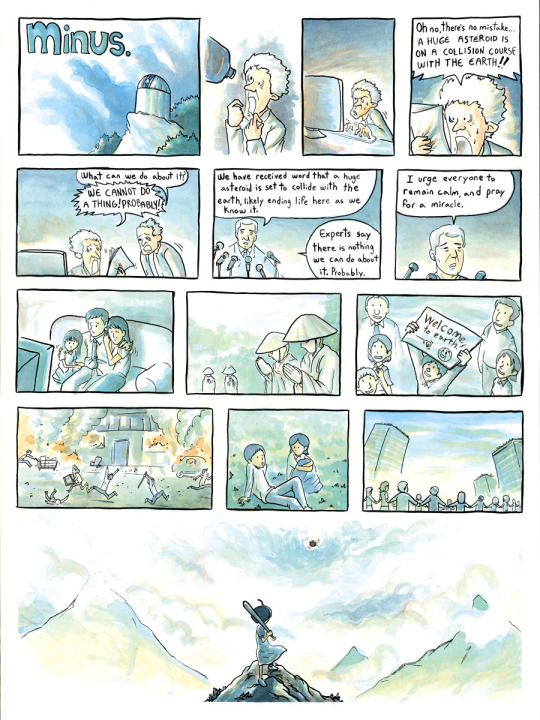
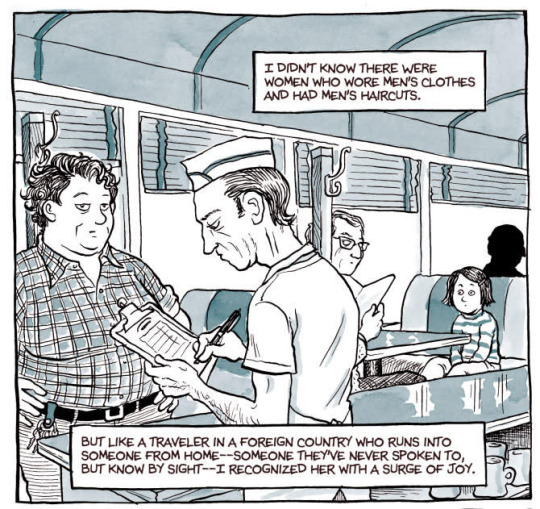
"minus #37" (2006 - Ryan Armand) / "Panel from Fun Home" (2006 - Alison Bechdel)
MINUS #37: minus was one of those webcomics that stuck in my brain. just an edge of whimsy and surrealism, and yet it's beautifully understandable to be a child's train of thought. and now it only exists on archive.org. (@kaerran)
PANEL FROM FUN HOME: This panel never fails to fuck me up! (@blackholefriends)
("minus" is a webcomic created by Ryan Armand. Each comic strip is painted in watercolor on a 15x20" illustration board. The archive is available here and on web archive.
"Fun Home: A Family Tragicomic" is a 2006 graphic memoir by the American cartoonist Alison Bechdel. The panels are illustrated in black line art with a blue-gray ink wash.)
207 notes
·
View notes